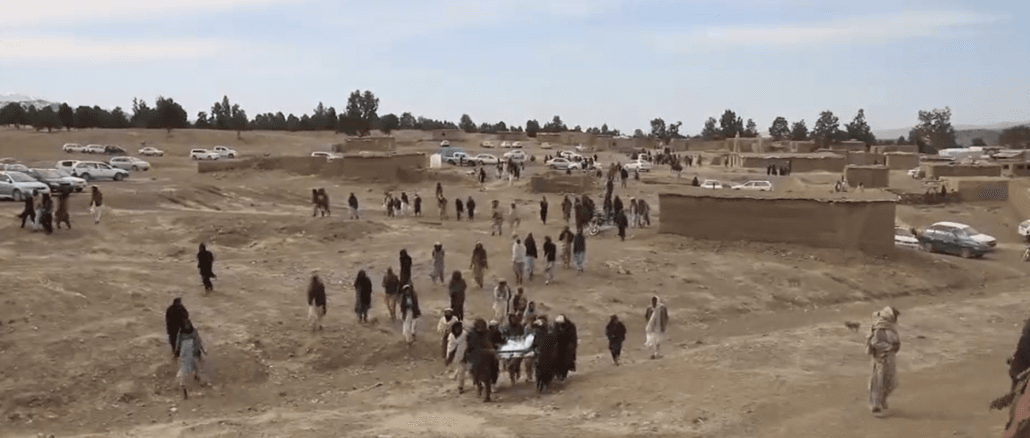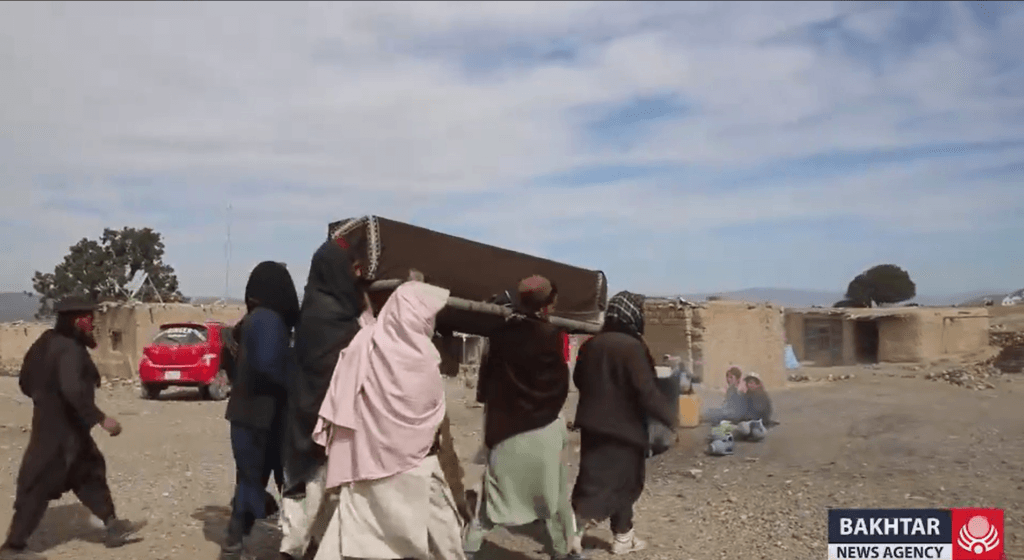
The Taliban government in Afghanistan says at least 46 civilians, most of them women and children, have been killed in Pakistani airstrikes in Paktika Province. According to Taliban officials, the strikes took place overnight in the Barmal district and targeted four different areas.
Taliban Condemnation and Warnings
Taliban spokesperson Zabihullah Mujahid told the AFP news agency that the attacks occurred in four areas of Paktika. In a statement issued by the Taliban’s Ministry of Defense, the strikes were denounced as “barbaric,” and the ministry warned Pakistan that such actions would not go unanswered. The ministry claimed that many of the victims were “Waziristani refugees” who had fled earlier military operations in Pakistan.
“The Islamic Emirate considers this brutal action a violation of all international principles and an act of aggression,” the Taliban statement read. “The Pakistani side must realize that such unilateral actions will not resolve any problems. The Islamic Emirate will not leave this heinous act unanswered and reserves the right to defend its territory and sovereignty.”
Pakistan’s Position
While the Pakistani government and military have yet to comment officially, some local media outlets quoted unnamed security officials who said the strikes targeted “terrorist hideouts” associated with the Pakistani Taliban. Those officials claimed that several “key militant commanders” were killed and a training facility was destroyed.
Barmal district lies close to South Waziristan’s Wana and Razmak regions in Pakistan. Taliban authorities say the airstrikes predominantly hit “Waziristani refugees” who have been living in camps along the Afghan-Pakistan border.
In 2014, Pakistan launched a large-scale military operation called “Zarb-e-Azb” to clear militants from North Waziristan. The offensive, lasting several years, reportedly killed hundreds of insurgents but also displaced hundreds of thousands of residents, forcing many to leave their homes. While many displaced people moved to other cities in Pakistan, some crossed the Durand Line into Afghanistan, where they settled in refugee camps.
Although security in parts of Pakistan’s North Waziristan and other tribal districts has relatively improved in recent years, there has been a recent resurgence of attacks and military confrontations. The Pakistani government alleges that Tehrik-i-Taliban Pakistan (TTP) fighters use Afghan territory to plan attacks on Pakistan—an allegation repeatedly denied by the Taliban government in Kabul, which insists it does not allow any group to use Afghan soil against another country.
Reactions
Several Afghan politicians have also condemned the airstrikes. Former President Hamid Karzai denounced the attacks on social media, describing them as a “clear violation” of Afghanistan’s national sovereignty and blaming Pakistan’s “wrong policies” for fueling extremism in the region.
Zalmay Khalilzad, the former U.S. Special Representative for Afghan Reconciliation, expressed concern on X (formerly Twitter). He suggested that if the reported airstrikes were true, the Taliban might retaliate. He urged both sides to negotiate an agreement that would prevent militant groups from using their territories against each other. “The Pakistani ambassador is already in Kabul,” he wrote. “But will General Munir allow these talks to begin?”
Pakistan’s former Taliban-era ambassador, Abdul Salam Zaeef, also called the strikes “a barbaric act that violates all principles.” At the same time, Mohammad Hanif Atmar, who served as Foreign Minister under the previous Afghan republic, also condemned the attacks. Atmar argued that the Taliban administration lacks the air and defense capabilities to prevent such incidents.

Previous Strikes and Tensions
This is not the first time the Pakistani military has conducted airstrikes inside Afghanistan. Earlier this year, the Taliban government accused Pakistan of carrying out bombings in Paktika’s Barman and Khost’s Spera districts, allegedly hitting civilian homes. At the time, the Taliban claimed to have retaliated with artillery shelling of Pakistani military positions near the Durand Line.
Following those incidents, Afghanistan’s Ministry of Foreign Affairs summoned Pakistan’s chargé d’affaires to deliver a letter of protest. Islamabad maintained that it was targeting militants linked to TTP and other groups it accuses of launching attacks from Afghan soil.
Similarly, in July 2023, reports emerged of Pakistani missile strikes in Barmal, allegedly hitting refugee camps housing Waziristanis.
Diplomatic Developments
The recent airstrikes come just days after Pakistan’s Special Envoy Mohammad Sadiq Khan met with acting Interior Minister Sirajuddin Haqqani and acting Foreign Minister Amir Khan Muttaqi in Kabul to discuss ways to improve relations. According to a statement from the Taliban Interior Ministry, both sides agreed to work on resolving tensions, strengthening trade ties, and bolstering economic cooperation.
The Taliban say Haqqani “emphasized the need for swift joint efforts to resolve security and political challenges so that ties between the two nations remain strong and the region’s stability and progress can be assured.” This is Mohammad Sadiq Khan’s first visit to Kabul since relations between Islamabad and the Taliban government cooled in recent months.
As both nations trade accusations over cross-border militancy, fears continue to grow that further escalations could undermine security and stability in the already fragile region.



Be the first to comment